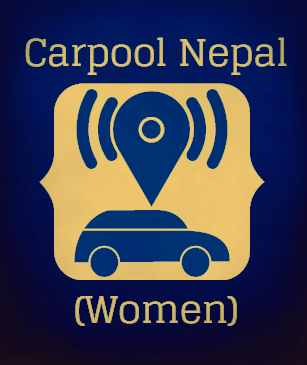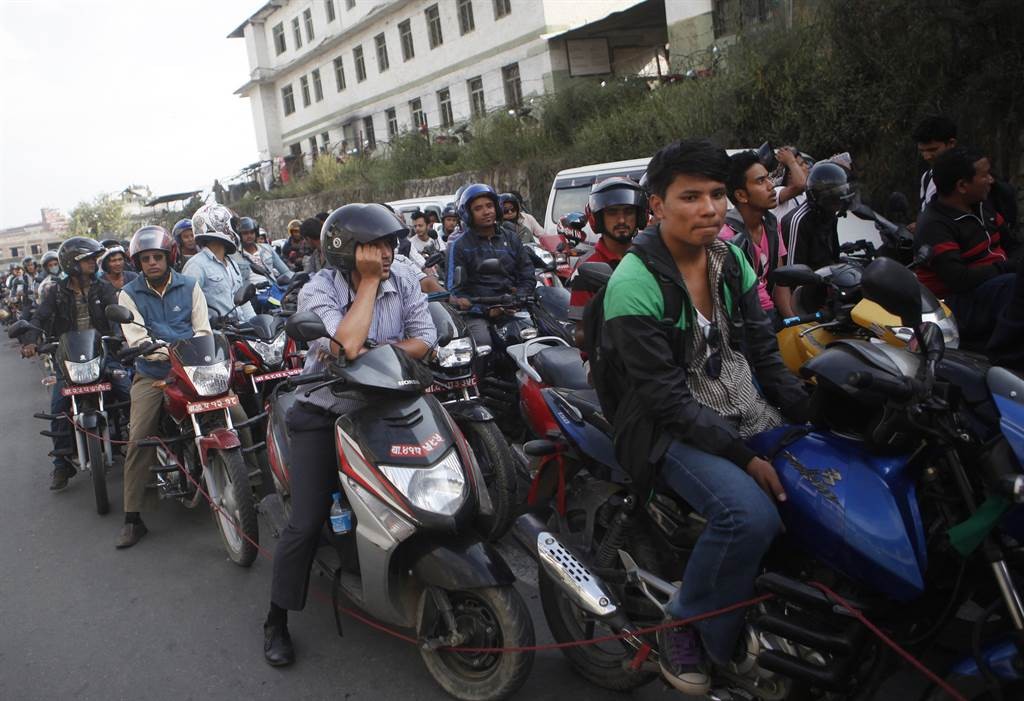Smriti RDN Neupane, Nepal, SSH Blog Correspondent
In Part 1, I discussed how a fuel shortage in Nepal has led to an increase in carpooling. However, carpooling has not been free from harassment for girls and women, and so a few young women created a closed Facebook group called “Carpool Nepal (Women).” Part 2 is my interview with one of the women (who wants to be anonymous).
 What do you mean by carpool or carpooling?
What do you mean by carpool or carpooling?
Simply, carpooling is ride-sharing. To elaborate, carpooling is a way of sharing rides by several participants to save on fuel and the cost. However, in Nepal’s context, most of the time, the owners have shared a ride out of generosity.
Ok, so what is Carpool Nepal (Women) – closed group and how does it work?
Carpool Nepal (Women) is a closed women’s group on Facebook for carpooling. We are a small group of individuals. We have also created a Facebook profile with the username “Carpoolers” to keep people updated personally and by best to our collective abilities.
The women in the group mention hashtags such as #Ask to ask and #Offer to offer rides to each other.
How do you want to be addressed as – administrators, initiators, campaigners, others?
We saw some people already sharing rides and many groups already being created to help one another through ride-sharing because people were starting to have problems getting rides due to shortage of fuel. So, we do not identify ourselves as being initiators. However, we started and administered the group Carpool Nepal (Women) which was made specifically for women.
Are the administrators of Carpool Nepal open group and women only group page same?
No, we are different. After 5-6 days of Carpool open group page started, we formed a women-only closed group. We requested the admins of open group to help by posting about the women’s group page so that women would be more secure and comfortable because clearly most of them weren’t. We did not receive any reply from the administration. However, we received a message from a woman saying that there is no need for our group. But we only wanted to feel safe while carpooling by asking and offering rides for and by women.
Some people also harshly said that there was no need to divide the group. Their logic was that creating a different “women’s only” group is like segregating the country on the basis of religion, caste and ethnicity, and that the creator and members of this “women’s only” group are the narrowest of minds. It was ironic because toilets are divided based on gender; dormitories are divided based on gender, but all that they saw were us being as one of the culprits. Despite seeing so many women being bullied and harassed on Facebook, all they saw was us dividing and somehow failed to see that specific segment of women that we were targeting to help.
Were there many instances of harassment?
Women who asked for offers were bombarded with harsh comments, were teased and made fun of. One time, one of the women expressed that she felt uncomfortable while receiving a ride with strange men and that was met with so many derogatory comments from many men and few women as well. Some (or most) men made outrageous comments and that made women feel harassed and bullied. Then women who asked and offered rides to women only were ridiculed as being discriminatory towards men.
Many women were skeptic of the rides because there were some posts stating that some women were harassed. Also, some men asked for rides with needing one, just for the excuse of riding with a woman on her scooter.
There were women who needed rides and some were willing to offer rides but were too uncomfortable to post on the Facebook page because they knew they would be attacked by dreadful, awkward, perverted and crazy comments.
Also, the purpose of the initial group was to post to ask and offer with respective hashtags. However, people used to post irrelevant posts, spam posts and jokes and a lot of selfies. So, the important posts used to pile below thus very few people were getting rides. We also wanted to make it clean, so we stuck to no other things being posted except asks and offers.
What has been the overall reaction from members and non-members?
Our group is clean as there are no irrelevant posts. However, the posts have been decreasing in number. Although many women were getting rides, the stacks of posts for asking and offering that the women made would pile below and it is inconvenient to search for posts on Facebook group. Another reason is that, people would get a lot of posts in there news feed, which may have forced them to turn off notification. This has happened in both the groups and happens in Facebook groups often.
We believe that it is because of just having it as a Facebook Group. A mobile app would have helped a lot of women in need. The negative feedback which we received, we have mentioned it. The good ones, the ones who have personally sent us a message to ask us for help have thanked us a lot and we feel as much thankful to them as well for giving us an overwhelming share of delight.
Though there are only 6K+ members, women were active, very comfortable and happier than in the other group.
Do you intend to continue the campaign and your page even after easy availability of fuel?
We will help the group as long as we can from our Facebook profile. We have also helped a few by personally finding rides for them. We thought of creating a mobile app specifically for women, however the cost and time constraints kept us away from doing it. Despite that, we want to keep on helping our women by whichever way we can and we have been as well to the best of our abilities and resources.
Smriti coordinated Safe cities campaign in Nepal with a team of feminist activists of various organisations, networks and community groups from 2011 to 2014 and is still voluntarily engaged with it. She is currently engaged in an action research and advocacy on women’s leadership in climate change adaptation focusing on women’s time use.

